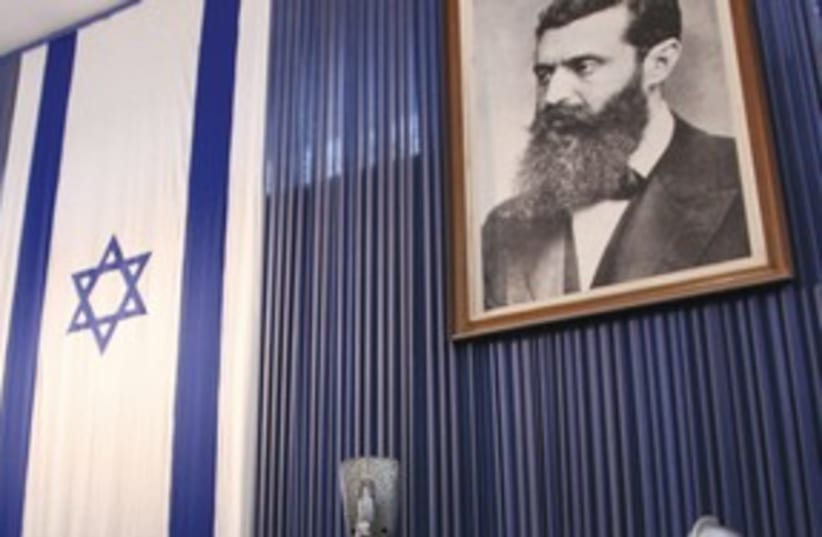These are extracts from Israel’s Declaration of Independence, read out by David Ben-Gurion almost exactly 63 years ago, as the clouds of war gathered. The following day, the Arab world would unite in an attempt to strangle the Jewish State at birth. Israel won that war, and several since, but today, though physical threats to its security remain, there is another war to be fought; a war to defend the dreams of Israel’s founding fathers.ISRAEL HAS no written constitution; the Declaration of Independence is the closest thing we have to a mission statement.Many messages can be derived from it, but the two central motifs are exemplified in the sections cited above.Namely: 1) That Israel is the realization of the legitimate right of the Jewish people to a sovereign state of their own within the boundaries of their historical, cultural and religious homeland; 2) That that state should fulfill the moral imperatives inherent in Judaism, expressed by the ancient prophets and consistent with the modern principles of democracy and human rights.These should remain the key principles for Israeli policymakers if we are to see the country live up to the vaunted aspirations of not only the drafters of the Declaration, but the godfathers of Zionism such as Herzl, whose novel Altneuland envisaged an enlightened Jewish state acting as a beacon of freedom; or Ahad Ha’am, for whom the Jewish character of the state, epitomized by an ethical core, was its raison d’être.The war for the defense of the Declaration of Independence has two battlefields: here in Israel and abroad.
Defending the declaration
A state where we can exercise “the natural right of the Jewish people to be masters of their own fate, like all other nations."

These are extracts from Israel’s Declaration of Independence, read out by David Ben-Gurion almost exactly 63 years ago, as the clouds of war gathered. The following day, the Arab world would unite in an attempt to strangle the Jewish State at birth. Israel won that war, and several since, but today, though physical threats to its security remain, there is another war to be fought; a war to defend the dreams of Israel’s founding fathers.ISRAEL HAS no written constitution; the Declaration of Independence is the closest thing we have to a mission statement.Many messages can be derived from it, but the two central motifs are exemplified in the sections cited above.Namely: 1) That Israel is the realization of the legitimate right of the Jewish people to a sovereign state of their own within the boundaries of their historical, cultural and religious homeland; 2) That that state should fulfill the moral imperatives inherent in Judaism, expressed by the ancient prophets and consistent with the modern principles of democracy and human rights.These should remain the key principles for Israeli policymakers if we are to see the country live up to the vaunted aspirations of not only the drafters of the Declaration, but the godfathers of Zionism such as Herzl, whose novel Altneuland envisaged an enlightened Jewish state acting as a beacon of freedom; or Ahad Ha’am, for whom the Jewish character of the state, epitomized by an ethical core, was its raison d’être.The war for the defense of the Declaration of Independence has two battlefields: here in Israel and abroad.